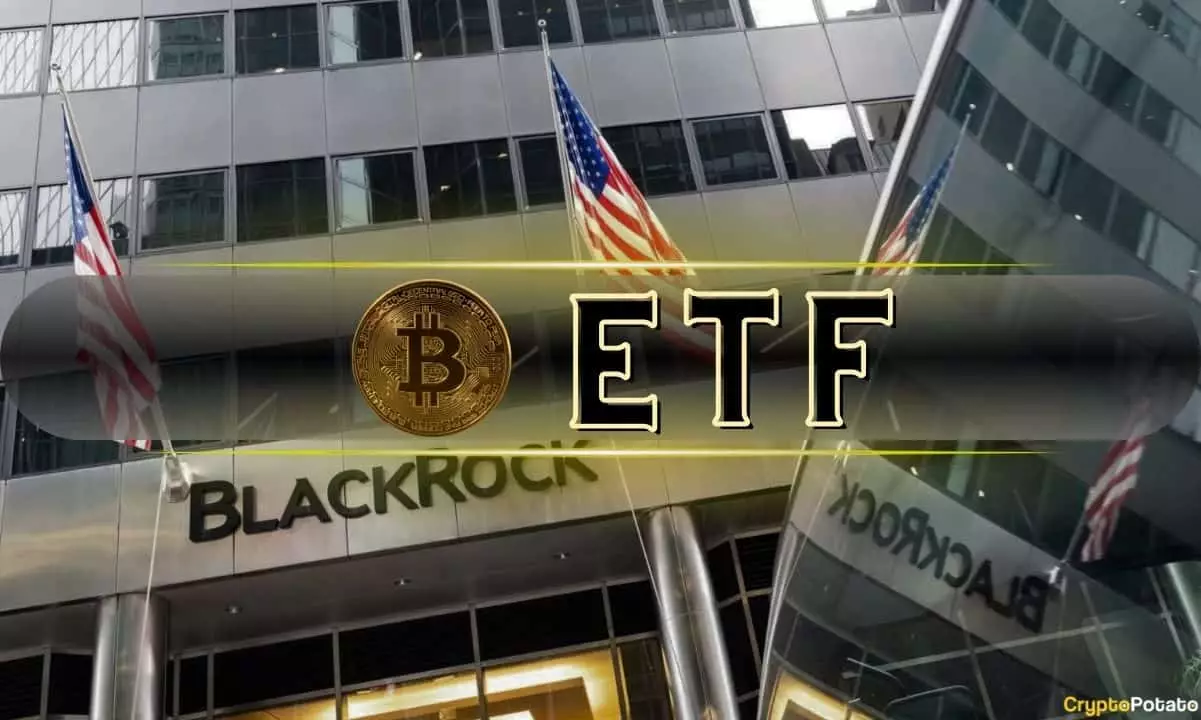On October 21, investors flocked to BlackRock’s iShares Bitcoin Trust (IBIT), acquiring an impressive 4,869 BTC valued at approximately $329 million. This surge in purchases occurred despite an overall downturn in the cryptocurrency markets, signaling a significant divergence in investor sentiment. While many rival spot Bitcoin exchange-traded funds (ETFs) in the United States faced outflows, IBIT’s performance stood out, indicating a strong vote of confidence from the market.
This remarkable influx marks the sixth consecutive trading day during which BlackRock’s Bitcoin ETF has displayed similar buoyancy, accumulating a staggering total of $1.47 billion over the past week alone. The scale of these inflows is not only notable in the context of IBIT, but also highlights the broader trend of investor engagement with Bitcoin, which has now led to a total inflow exceeding $23 billion since the ETF’s inception in January.
When evaluating the week’s performance, ETF Store President Nate Geraci stated that IBIT’s recent flow would position it among the top five launches of 2024 out of an impressive 570 ETFs. This performance is particularly striking given that all competing funds, except for Fidelity’s Bitcoin ETF (FBTC), either stagnated or experienced outflows. Indeed, FBTC recorded a minor inflow of $5.9 million—an encouraging sign, but hardly a match for IBIT’s spectacular gains.
Interestingly, despite BlackRock’s strong showing, other players in the ETF space struggled. Funds from Bitwise, Ark 21Shares, VanEck, and Grayscale collectively confronted significant outflows, illustrating a stark contrast in the market’s enthusiasm for BlackRock’s offerings. As the dust settled from the turbulent trading day, it became evident that while Bitcoin showed resilience, altcoins faced a harsher reality.
The Ethereum Landscape and its Challenges
In particular, the sentiment surrounding Ethereum ETFs painted a less favorable picture, as these funds recorded a combined net outflow of $20.8 million on the same day. The Grayscale Ethereum Trust (ETHE) bore the brunt of $29.6 million in redemptions, compounding the trend observed in the Ethereum market where total capital has noticeably decreased due to rising investor aversion toward high-fee funds.
Grayscale’s resounding losses amounted to over $3 billion thus far, pointing toward a systemic issue within Ethereum-focused ETFs that may continue to dissuade investors from engaging with these vehicles. The exodus from such high-fee funds has raised questions about their sustainability and long-term viability.
As Bitcoin, which reached a multi-month high of $69,300, corrected to the low $67,000 range, the market’s dynamics have shifted dramatically. The expected pullback is partly attributed to heightened leverage and record-high open interest in Bitcoin futures. Despite these challenges, Bitcoin has managed a slight recovery, trading at around $67,500 at publication time. However, the altcoin market saw deeper repercussions, emphasizing the uneven recovery across various cryptocurrencies.
With total capitalization settling at $2.44 trillion, the current state of the cryptocurrency market suggests a period of reflection and adaptation. As traditional players like BlackRock navigate through a sea of uncertainty, their exceptional performance could redefine investor strategies and intentions in the rapidly evolving digital asset landscape. As we move forward, the contrasting fortunes of Bitcoin and Ethereum ETFs will be crucial metrics for market observers.

